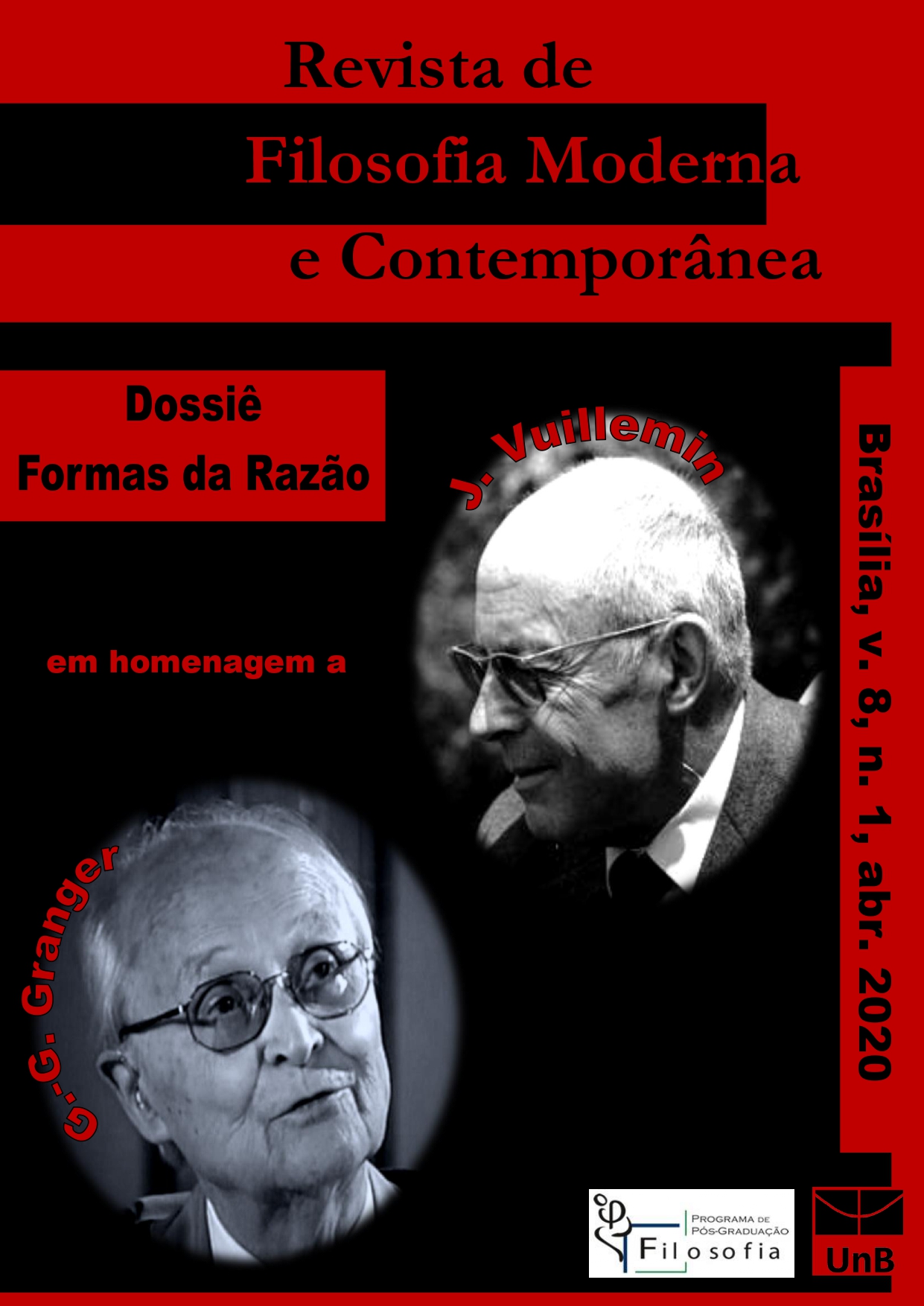From Neopositivist Inductivism to Popperian Critical Rationalism
A Discussion on Demarcation Criteria in Scientific Epistemology
DOI:
https://doi.org/10.26512/rfmc.v8i1.28435Keywords:
Logical Empiricism. Karl Popper. Epistemology. Demarcation CriteriaAbstract
This paper aims to present a brief discussion of the debate between the logical empiricism of the Vienna Circle and the critical rationalism of Karl Popper. After a general discussion of the theoretical perspective of the Viennese intellectuals, the aim is to demonstrate how the philosopher Karl Popper tries to overcome the principle of verification of the logical empiricists by means of the principle of falsifiability. In analyzing Popper's critiques in more detail, we try to address some theoretical questions about the difficulties of supplanting the criterion of Popperian scientific demarcation in relation to the neopositivist, especially regarding the use of the inductive method.
Â
Downloads
References
ALMEIDA, Vítor Hugo S. de. O Problema da Demarcação como Problema Central da Filosofia da Ciência. Dissertação de Mestrado. Universidade de Lisboa ”“ Dep. de História e Filosofia das Ciências. Lisboa, 2016.
ARANHA, Maria Lúcia de Arruda; MARTINS, Maria Helena Pires. Filosofando: introdução à filosofia. São Paulo: Moderna, 1995.
BENTON, Ted. The Philosophical Foundations of the Three Sociologies. Londres e Nova York: Routledge, 2015.
BRYANT, Christopher. Positivism in Social Theory and Research. Londres: MacMillan, 1985.
CARNAP, Rudolf. The Logical Structure of the World. Pseudoproblems in Philosophy, California: University of California Press, 1967.
DURANT, Will. A História da Filosofia. Os Pensadores. Tradução de Luiz Carlos do Nascimento Silva. São Paulo: Nova Cultural. 2000.
HALFPENNY, Peter. Positivism and Sociology: Explaining Social Life. Londres: George Allen & Unwin, 1982.
MATTEO, V. Di. O olhar epistemológico popperiano sobre psicanálise. Perspectiva Filosófica, v. VII, n.13, p. 11-39, 2001.
PASSMORE, John. A Hundred Years of Philosophy. Londres: Penguin Books, 1994.
POPPER, K. Lógica das Ciências Sociais. Rio de Janeiro. Biblioteca Tempo Universitário: 1999.
POPPER, K. Conjecturas e refutações: o progresso do conhecimento científico. Ed. Universidade de Brasília, 2008.
POPPER, K. A lógica da pesquisa científica. Tradução de Leônidas Hegenberg e Octanny Silveira da Mota. São Paulo: Cultrix, 1974.
ROSA, Luiz Carlos Mariano da. Popper e a Objetividade do conhecimento científico: a Ciência provisória e a verdade temporária. Rev. Cognitio-Estudos. Vol. 8, nº 1. São Paulo, 2011. Disponível em: https://revistas.pucsp.br/index.php/cognitio/article/viewFile/5591/5935 Acesso em: 06/10/18.
SCHLICK, Moritz. “Positivismo e Realismo”. In: Schlick-Carnap. São Paulo: Abril Cultural (Coleção Os pensadores), 1980.
Downloads
Published
Issue
Section
License
Copyright (c) 2020 Journal of Modern and Contemporary Philosophy

This work is licensed under a Creative Commons Attribution-NonCommercial-NoDerivatives 4.0 International License.
Copyright for articles published in this journal is retained by the authors, with first publication rights granted to the journal. By virtue of their appearance in this open access journal, articles are free to use, with proper attribution, in educational and other non-commercial settings.


